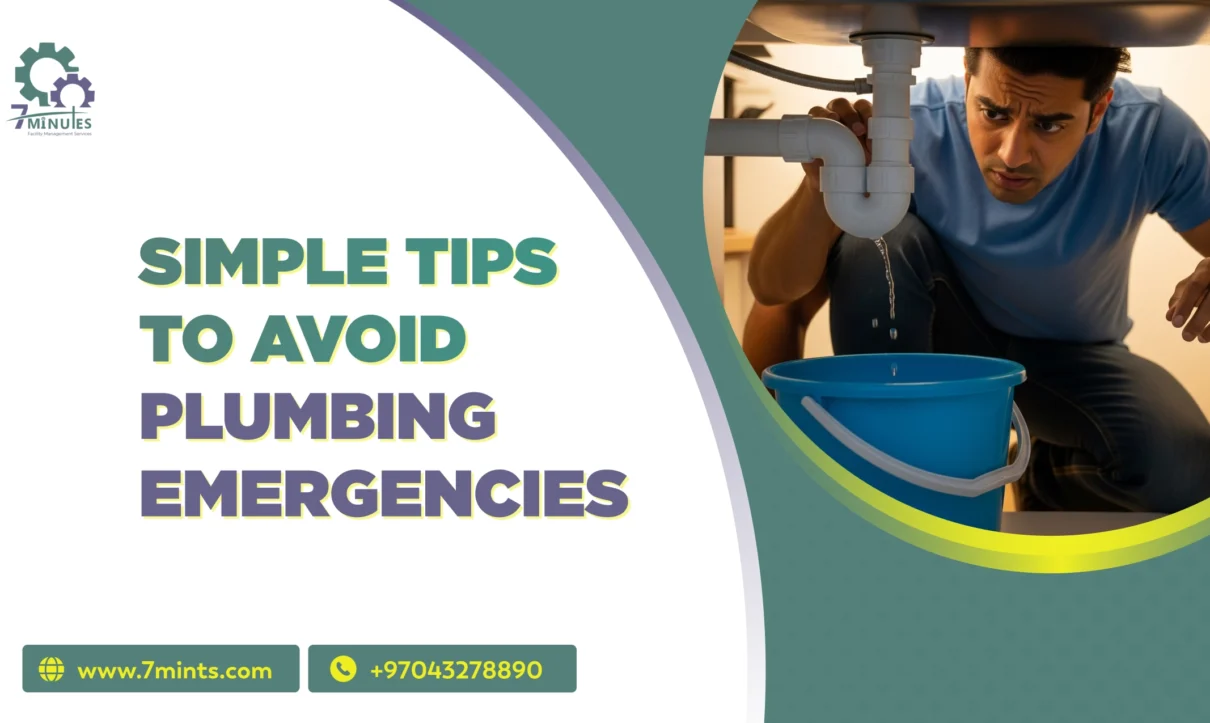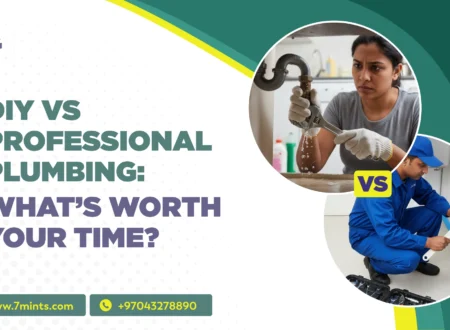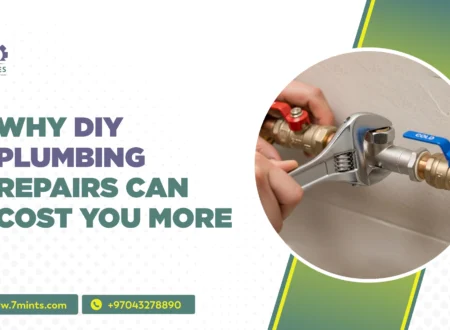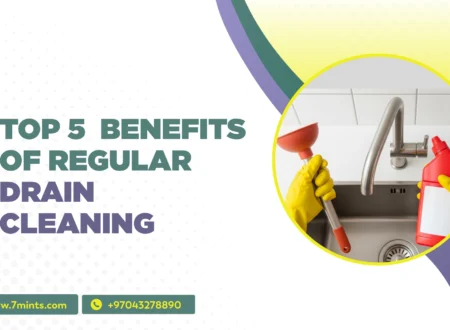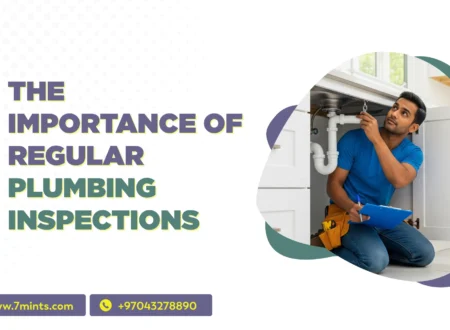Plumbing problems can arise without warning and quickly turn into stressful and expensive situations. From burst pipes to overflowing drains, plumbing emergencies can disrupt daily life and cause serious property damage. Understanding how these problems occur and taking preventive steps can help homeowners Avoid Plumbing Emergencies before they escalate. With proper care, awareness, and timely action, it is possible to avoid plumbing issues and maintain a reliable plumbing system.
One of the most effective ways to prevent plumbing emergencies is through regular plumbing inspections. Professional plumbing inspections help identify hidden leaks, pipe corrosion, water pressure problems, and aging fixtures before they fail. Scheduling routine plumbing inspections ensures that small concerns are fixed early, reducing the risk of sudden breakdowns. Homeowners who invest in preventive checks are far more likely to Avoid Costly Plumbing Emergencies in the long run.
Clogged drains and sewer backups are among the most common plumbing emergencies. These issues often develop due to grease buildup, hair accumulation, or flushing inappropriate items. Simple habits such as using drain strainers, avoiding chemical cleaners, and disposing of waste properly can help avoid plumbing issues and keep pipes flowing smoothly. Routine plumbing inspections can also detect early blockages and structural pipe damage.
-
Understand Your Home’s Plumbing System
The first step to avoid plumbing emergencies is to learn how your plumbing system operates. Every home should have learned where the main water shut-off valve is so that in any serious leak, turning it off immediately saves water damage from spreading. It is also good to learn what type of pipes exist within your domicile—whether copper, PVC, or PEX—as each needs different care and has a different lifespan. Learn where sinks, toilets, outside faucets, and water heaters connect to your system.
-
Watch Out for Leaks
Leaking pipes and faucets start out slowly, then get bigger within no time and cause serious damage if unattended. Make it a routine to check under sinks, toilets, and appliances such as dishwashers and washing machines for dripping water. Such leaks could be wasting hundreds and thousands of liters in the long run and damaging cabinets, floors, or even walls. Keep an eye on your water billing, as a sudden hike without a known cause is always an indicator of a hidden leak somewhere inside your drenched system. Outside drainage systems must be checked as well: garden hoses, sprinkler systems, and taps may all develop unnoticed leaks. Catching these leaks early will save you money and trouble.
-
Avoid Drains from Getting Clogged
Clogged drains are among the common and preventable plumbing problems. Always remember that grease, oil, and fat pose the worst threats to any plumbing system. Do not pour them down the kitchen sink; they solidify inside the pipes and cause blockages that are difficult to clear. Use drain strainers or covers to block hair and soap scum from going down the drain in the bathroom. In the kitchen sink, prevent food scraps from clogging pipes with strainers. Once every week, pour instant boiling water into the drains to keep them clean and free-flowing.
-
The Bigger Deals: Freeze Protection (For Cold Climates)
In the winter, it could be dangerous for freezing pipes to freeze if you are in an area with winter weather. To keep such situations away, insulate pipes exposed in places like basements, garages, or crawl spaces that remain unheated. Also, on cold winter nights, the drums of a drop from the tap to keep the water moving and help prevent freezing. These simple measures could end with a smile on your face instead of a bitter experience; costly repairs and so much stress will come to greet you when the temperature dips away.
-
Keep Water Pressure Within Safe Levels
High water pressure is just perfect in a shower, but it is bad in the long run for your plumbing. Excessive pressure stresses pipes, joints, and appliances, thereby increasing the possibility of leakage or bursting. You can install a water pressure regulator to maintain water pressure within a safe range (usually 40 to 60 psi for most homes). Alternatively, you can also use a basic pressure gauge to measure water pressure and fine-tune as you require. Sudden and drastic changes in water pressure may, however, hint at blockages or leakages.
-
Care for Your Water Heater
Your water heater works hard every day, and without maintenance, it could fail unexpectedly. Sediment accumulation occurs in the tank, decreasing efficiency and possibly causing corrosion. Flushing the tank once a year removes the buildup and helps in the smooth operation of your heater. Check out the thermostat settings; keep it at about 120°F (49°C), which is ideal for safety, energy conservation, and scald prevention. Check it any time for rust, leaks, or strange noises—another indication that it needs maintenance or replacing. With a good maintenance regimen in place, your water heating service will always be there for you with hot water and without any sudden breakdowns.
-
Proper Use of Plumbing Fixtures
It will always be surprising to know how most plumbing problems come from simple misuse! The toilets, for instance, require only to take in things that comprise human waste and toilet paper—wipes, sanitary products, cotton balls, whatever will spell a tough blockage for a plumber to clear. For the kitchen, try not to use chemical drain cleaners since this will damage the pipes with time; natural options should be fine, such as baking soda and vinegar. Be gentle when opening and closing taps, as abrupt action can prematurely cause wear on washers and valves. Check out our latest blog post on What Is SEER Rating, and Why Does It Matter?
-
Get Regular Sewer Plumbing Inspections
If you do everything to maintain your plumbing system at home, you should never miss getting it checked by a professional. Yet, small leaks inside walls, slow drainage, or early pipe corrosion are some hidden issues plumbers detect with their gadgets. It is convenient to even schedule one annual inspection to save on huge repair costs later when an emergency strikes. A kind of check-up for your home’s plumbing; preventive maintenance is usually cheaper and easier than emergency repair. You must build a good relationship with your plumber so you have a plumber’s number ready when something goes wrong.
-
Preparing an Emergency Plan
Despite all precautions, sometimes plumbing emergencies do arise. You and your family should know where the main water shutoff is and how to use it to stop flooding fast. Keep a reliable plumber’s phone number handy in your mobile and posted on your kitchen or utility room wall. Also, prepare a handy set of tools like a plunger, plumber’s tape, and buckets to help manage a small problem until the plumber gets there.
Water heaters are another major source of plumbing emergencies, especially when they are not maintained properly. Sediment buildup, faulty valves, or aging tanks can lead to leaks or system failure. Annual servicing and plumbing inspections of water heaters help homeowners Avoid Plumbing Emergencies and extend equipment lifespan. These preventive measures also support efforts to Avoid Costly Plumbing Emergencies caused by sudden water damage.
Seasonal changes, especially during winter, can trigger plumbing emergencies such as frozen or burst pipes. Insulating exposed pipes and monitoring water pressure are essential steps to avoid plumbing issues during colder months. Homeowners who prepare in advance are more likely to Avoid Plumbing Emergencies and reduce repair costs.
Ultimately, proactive maintenance is the key to preventing plumbing emergencies. Consistent plumbing inspections, smart daily habits, and timely repairs help homeowners Avoid Costly Plumbing Emergencies while ensuring long-term plumbing efficiency. By staying informed and prepared, you can Avoid Plumbing Emergencies, protect your home, and enjoy peace of mind knowing your plumbing system is secure.
Conclusion
It takes some awareness, good habits, and routine maintenance. From checking leaks to protecting pipes against winter, these little things would go a long way in keeping a plumbing system working smoothly. Contact us and remember, if you catch a problem early, its repair will be easier and cheaper. So, acting today to protect your home from an unplanned plumbing emergency should be your priority. If you witness the signs or wish to be double-sure with your plumbing, just call for a pro plumber to give their advice and inspection.


